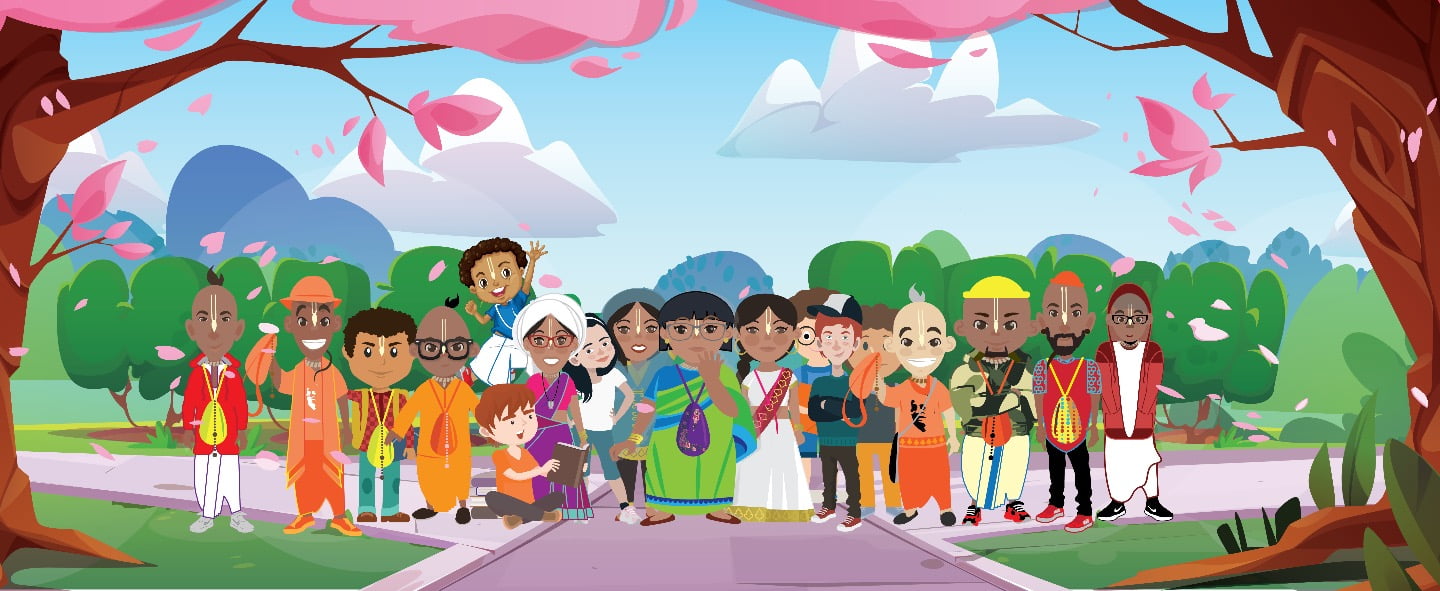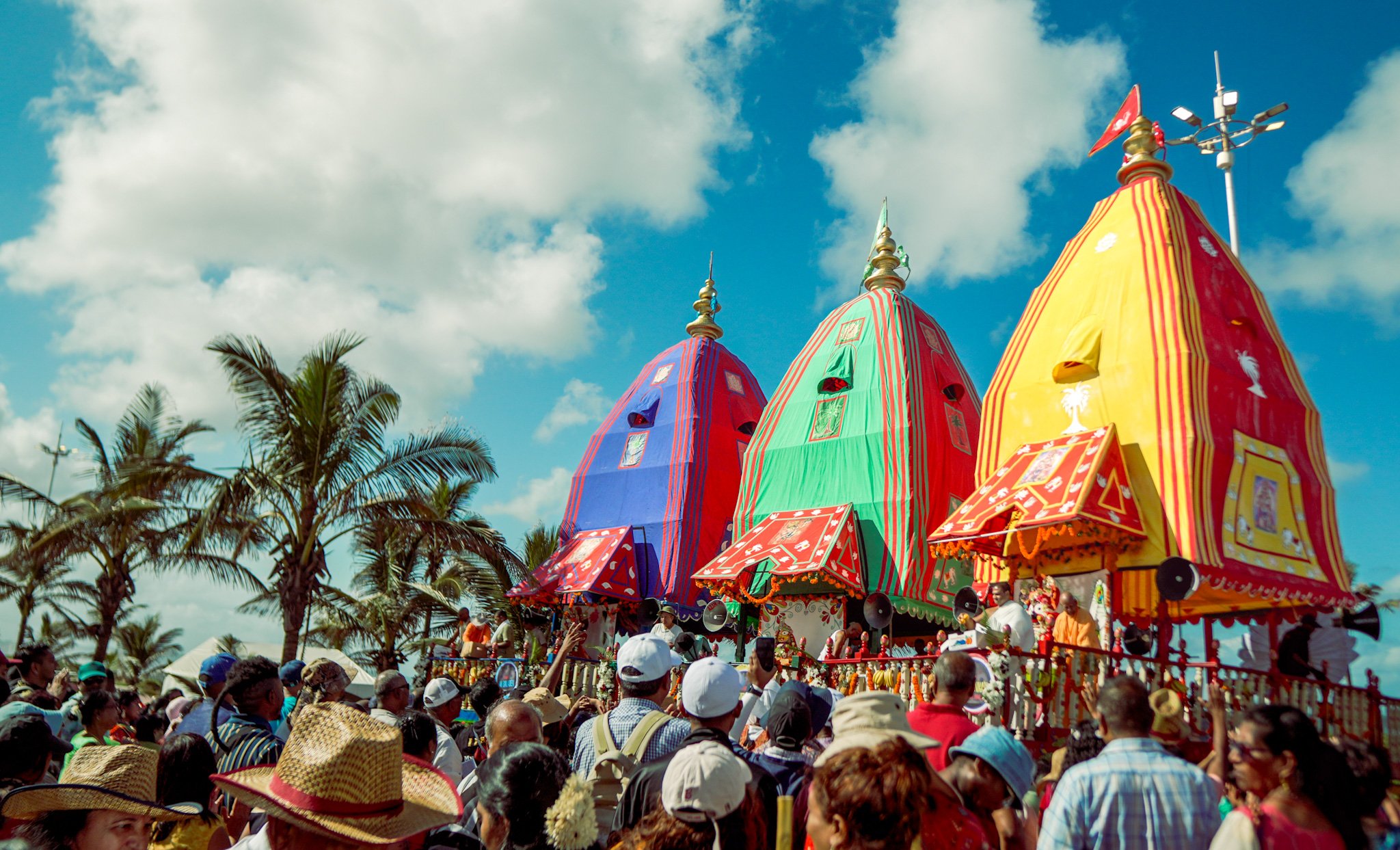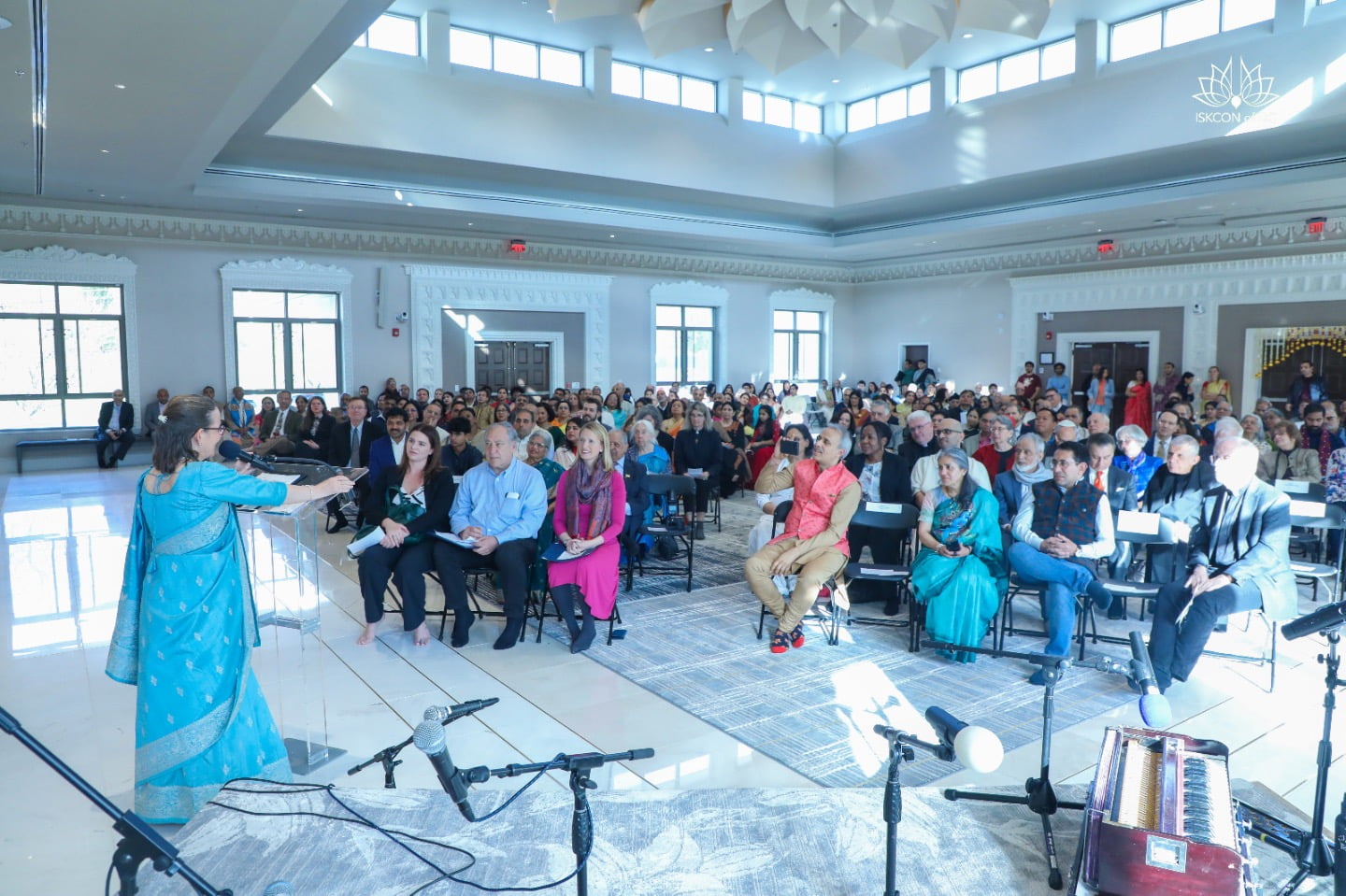Reflections on Titanic Disasters
By Giriraj Swami | Apr 20, 2012

To mark the centennial of the sinking of the luxury liner Titanic, which went to the bottom of the Atlantic Ocean early in the morning of April 15, 1912—taking with it five grand pianos, an automobile, a fifty-line telephone switchboard, a jeweled copy of The Rubaiyat of Omar Khayyam, and more than 1,500 lives—articles, books, a television series, and the rerelease of the blockbuster film Titanic (converted to 3-D at a cost of eighteen million dollars) are flooding the market.
I am reminded of a day some years ago when I was waiting at a dentist’s office and my eyes fell on the cover of an issue of Life magazine. A huge ship, half submerged, was heading down into a vast, dark ocean. People were gathered frantically around the railings of her upward-poised stern; others were sitting stunned in a lifeboat, watching. Lights from the ship were reflected dimly on the water and the small lifeboat as its passengers were rowing away from the destiny awaiting those left on board. Superimposed on the night sky, an eye was staring, captivated by the ghastly spectacle.
It was a haunting picture, with a title to match: “Titanic Fever–Why we can’t look away from disasters.”
The article described various disasters in history: the eruption of Mount Vesuvius in 79 CE, which buried Pompeii and its 20,000 citizens under twenty feet of volcanic ash; the Great Chicago Fire of 1906, which ravaged 2,000 acres of the city and killed 250 people; the Lisbon earthquake of 1755, in which 60,000 died; the great Boston Molasses Flood, in which a fountain of molasses burst out of a distillery’s cast-iron tank and oozed through the streets, suffocating 21 people; the 1986 explosion of the space shuttle Challenger, telecast live before millions; and almost fifty years before that, the crash of the zeppelin Hinderberg, broadcast live over the radio to millions of listeners. There is no dearth of disaster in world history.
The article focused on people’s fascination with the Titanic. Even then, “Titanimania” had given rise to dozens of books, a CD-ROM, a television movie, a Broadway musical, a blockbuster Hollywood film, a multimillion-dollar exhibition of Titanic artifacts, and even a cookbook: Last Dinner on the Titanic.
Although advertised as a ship that could never sink, the Titanic sank on her maiden voyage after just four days at sea. Built as the largest, most luxurious ocean liner of that time, her construction cost $7.5 million and engaged thousands of workers. She boasted a crew of 892–two for every three passengers–and, remarkable for 1912, amenities such as gymnasium, a swimming pool, and Turkish baths. The passengers would dine on delicacies and have everything they needed.
All seemed set for a comfortable and pleasurable voyage. Among the elite on board were millionaire realtor John Jacob Aster, entrepreneur Isidor Straus, industrialist George Widener, and English artist Francis Millet. Passengers’ spirits were high as the Titanic left the Southampton port. One thing was sure in their minds: the journey would be safe.
After two days at sea, the captain began to receive warnings of ice and bad weather ahead. Two days later, on Sunday, April 14, 1912, there was not much sign of weather change, so the captain retired early, leaving the ship in the hands of other crewmembers. He told them to rouse him if the situation became “at all doubtful.”
Crewmen posted in the crow’s nest had no binoculars, and the ship’s wireless operator, overburdened by demands from passengers, failed to respond to repeated bad-weather warnings. While life on the great luxury liner carried on with abandon, she was moving into treacherous waters. The crew of the 46,329 tons of Titanic spotted the iceberg too late to divert the ship from inevitable disaster.
At first none of the passengers took the collision seriously. But as water gushed into five of her front compartments and her nose started to dip, reality took hold: the Titanic was sinking.
More than 1,500 people went down with the Titanic that night. Those who got away in life boats lived to tell the tale. The rest held on till the last minute, before plunging into the icy North Atlantic waters as the ocean swallowed the great ship.
Reading the article, I recalled Prahlada Maharaja’s prayer to Nrisimhadeva (Lord Krishna’s half-man, half-lion incarnation) in Srimad-Bhagavatam (7.9.19):
balasya neha saranam pitarau nrisimha
nartasya cagadam udanvati majjato nauh
taptasya tat-pratividhir ya ihanjaseshtas
tavad vibho tanu-bhrtam tvad-upekshitanam
“My Lord Nrisimhadeva, O Supreme, because of a bodily conception of life, embodied souls neglected and not cared for by You cannot do anything for their betterment. Whatever remedies they accept, although perhaps temporarily beneficial, are certainly impermanent. For example, a father and mother cannot protect their child, a physician and medicine cannot relieve a suffering patient, and a boat on the ocean cannot protect a drowning man.”
In the purport Srila Prabhupada writes, “Through parental care, through remedies for different kinds of disease, and through means of protection on the water, in the air and on land, there is always an endeavor for relief from various kinds of suffering in the material world, but none of them are guaranteed measures for protection. . . . Ultimately the shelter is the Lord, and one who takes shelter of the Lord is protected. This is guaranteed. . . .
“In the history of the world, no one has been successful in conquering the miseries imposed by material nature. . . . Our humble attempt to propagate the Krishna consciousness movement all over the world is the only remedy that can bring about a peaceful and happy way of life.”
Although everyone in the material world is trying to deflect the attacks of material nature, the efforts have never succeeded. In the Bhagavad-gita the creator Himself certifies the material world as a place of misery (duhkhalayam asasvatam). Only surrender to the Lord can save us.
Srila Prabhupada elaborates, “The material world is full of dangers (padam padam yad vipadam). For example, if one is on the ocean, one may have a very strong ship, but that ship can never be safe; because one is at sea, there may be dangers at any time. The Titanic was safe, but on its first voyage it sank, and many important men lost their lives. So danger must be there, because we are in a dangerous position. The material world itself is dangerous. Therefore our business now should be to cross over this sea of danger as soon as possible.” (Teachings of Queen Kunti)
Instead of being disturbed by the waves in the material ocean, which perpetually come and go, one should tolerate the waves and try to cross the ocean to safety, to the shore of the spiritual world. How? By the boat of Lord Krishna’s lotus feet:
samasrita ye pada-pallava-plavam
mahat-padam punya-yaso murareh
bhavambudhir vatsa-padam param padam
padam padam yad vipadam na tesham
“For those who have accepted the boat of the lotus feet of the Lord, who is the shelter of the cosmic manifestation and is famous as Murari, the enemy of the Mura demon, the ocean of the material world is like the water contained in a calf’s hoofprint. Their goal is param padam, Vaikuntha, the place where there are no material miseries, not the place where there is danger at every step.” (SB 10.14.58)
Shall we, then, make no practical effort to protect ourselves? We should take normal precautions. Still, as Srila Prabhupada writes, “Although as a matter of routine duty one must of course accept other remedial measures, no one can protect one who is neglected by the Supreme Personality of Godhead.”
If Krishna wants to save someone, no one can kill him, and if Krishna wants to kill someone, no one can save him (rakhe-krishna mare ke mare krishna rakhe ke). “Unless one is protected by the mercy of the Lord,” Srila Prabhupada writes, “no remedial measure can act effectively. One should consequently depend fully on the causeless mercy of the Lord.”
A person completely surrendered to Lord Krishna is confident of Krishna’s protection in all circumstances. Knowing that Krishna is ultimately the well-wishing protector of His devoted servant, the devotee accepts any situation as the Lord’s mercy. Still, as Srila Prabhupada explains, we should not think, “Because I have become a devotee there will be no danger or suffering.” Devotees such as Prahlada Maharaja, the Pandavas, Vasudeva and Devaki, and Haridasa Thakura apparently suffered greatly. But they never gave up faith in Krishna. Rather, when a devotee faces difficulty, he humbly thinks he deserves worse but Krishna is just giving him a token reaction so he can learn from his past mistakes and come closer to Krishna:
tat te ’nukampam su-samikshamano
bhunjana evatma-kritam vipakam
hrid-vag-vapurbhir vidadhan namas te
jiveta yo mukti-pade sa daya bhak
“My dear Lord, any person who is constantly awaiting Your causeless mercy to be bestowed upon him, and who goes on suffering the resultant actions of his past misdeeds, offering You respectful obeisances from the core of his heart, is surely eligible to become liberated, for it has become his rightful claim.” (SB 10.14.8)
The Lord explains in the Bhagavatam (10.88.8) that sometimes to show special mercy to His devotee He takes away material things to which the devotee is attached. Krishna thereby induces the devotee to take full shelter of Him and thus achieve the highest happiness and perfection.
The material world is fraught with danger; the only shelter is Krishna and Krishna consciousness.
The Life article points out that man has always been fascinated by disasters. Why? I’d say it’s because we know that a disaster may strike any of us at any moment. Although in recent years a whole field of risk management has developed to counteract risks and dangers, still the only shelter is the Lord’s lotus feet. And to take shelter of the lotus feet of Krishna in the present age, one need only chant His holy names–Hare Krishna, Hare Krishna, Krishna Krishna, Hare Hare/ Hare Rama, Hare Rama, Rama Rama, Hare Hare–and follow His instructions in the Bhagavad-gita and Srimad-Bhagavatam.
The alternative is disaster – Titanic disaster.












